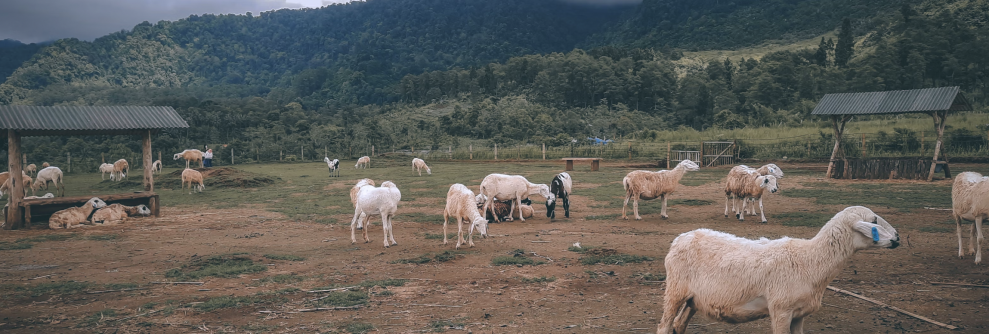Benefits of Uḍḥīyyah
بسم الله الرحمن الرحیم
Benefits of Uḍḥīyyah
Every command of Allah is full of wisdom and brings an abundance of good, both in this world as well as the hereafter. These commands are multi-faceted in their wisdom, bringing benefits to the individual and the community at large. Uḍḥīyyah is one such command in which there are numerous benefits.
Submission to Allah
The greatest objective achieved through all prohibitions and injunctions is the demonstration of servitude to Allah. We are refraining from the prohibition and acting on the instruction simply because Allah wants us to do so. This demonstration of subservience is quite evident in uḍḥīyyah; hundreds and thousands of animals are being slaughtered over the three days, the 10th, 11th, and 12th of Ḍhul Ḥijjah. In many cases, the meat is consumed by the one performing the uḍḥīyyah along with his family and friends who themselves are well to do. Thus, charity is not the sole objective of uḍḥīyyah which answers the question: is it not better to simply give money to the poor in place of slaughtering animals?
Following the sunnah of Sayyidunā Ibrāhīm
A second objective is to revive the sunnah of Ibrāhīm (peace be upon him). Allah tested Ibrāhīm (peace be upon him) by commanding him to slaughter his son Ismāʿīl (peace be upon him). Ibrāhīm (peace be upon him) went to execute the instruction and made all necessary preparations. At the last moment, Allah sent a ram in place of Ismāʿīl. Imāms Ibn Mājah and Aḥmad have related from Zayd ibn Arqam (Allah be happy with him) that the companions asked the Messenger of Allah ﷺ: ‘What are these aḍāḥī?’ The Messenger of Allah ﷺ replied: ‘[They are] the way of your father Ibrāhīm’.
Performing one of the most virtuous actions in specific days
From the various types of worship that we engage in, most are those which can be performed anywhere, such as ṣalāh, zakāh, fasting, recitation of Qurʾān, etc. Then there are those which can be performed only in certain locations; for example: ṭawāf, saʿy, pelting the jamarāt. Uḍḥīyyah is one such worship which although can be performed anywhere, is restricted by time. Slaughtering an animal is a worship only in three days of the year: the 10th, 11th, and 12th of Ḍhul Ḥijjah. As this worship is restricted to these days, Rasūlullah ﷺ encourages us to perform uḍḥīyyah in the following words: ‘The son of Ādam does not perform any action on the day of slaughtering more beloved to Allah than spilling the blood [of sacrificial animals] (Tirmiḍhī).
Resembling those performing Hajj
Millions of people from around the globe are fortunate to be invited by Allah to perform ḥajj. During this journey, different rituals are carried out, and these rituals can be performed only in designated locations such as ṭawāf, saʿy, pelting the jamarāt, etc. One of the rituals is the slaughtering of animals in Minā showing gratitude to Allah for being given the opportunity to perform such an auspicious worship. Among the benefits of uḍḥīyyah is the ability to resemble this ritual of ḥajj as those unable to perform ḥajj can also slaughter an animal to show gratitude for the countless bounties from Allah.
Meat for everyone
The days of uḍḥīyyah are days when there is an abundance of meat. Hundreds and thousands of animals around the world are slaughtered, and there is an abundance of meat which is shared with family, friends, neighbours, and people who are not fortunate enough to have meat throughout the year. It is for this reason that Rasūlullāh ﷺ specifically encouraged sharing the meat with others. It is as though this is a banquet provided by Allah. Furthermore, this is why fasting on the 10th of Ḍhul Ḥijjah is impermissible. Imām Muslim has related from Nubayshah (Allah be pleased with him) that Rasūlullah ﷺ said: ‘The days of tashrīq are days of eating and drinking’.



